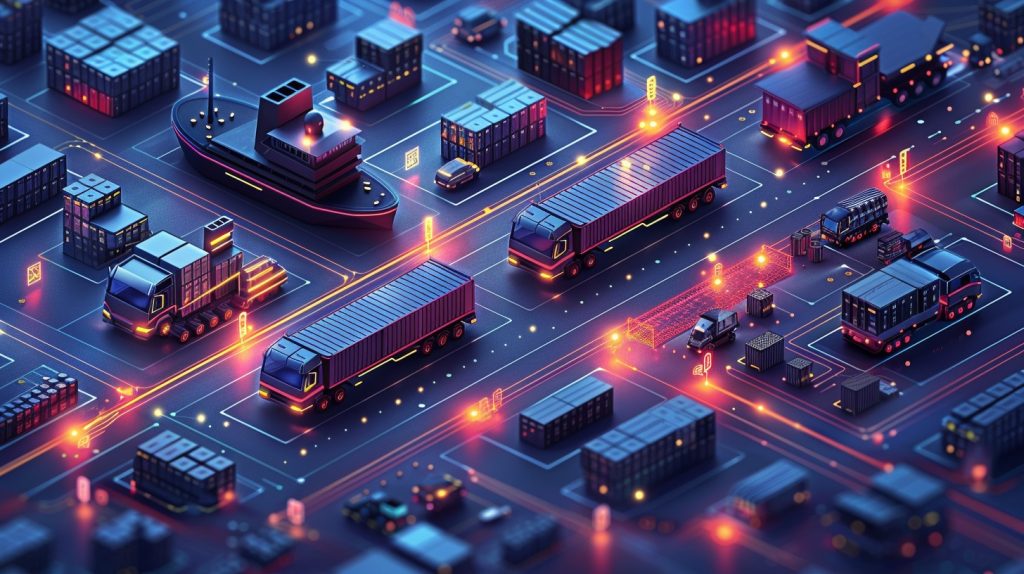
Blockchain technology is revolutionizing supply chain control by addressing long-standing challenges like transparency, traceability, and efficiency. With solutions like Crypto Bridging, businesses can further streamline operations, enabling seamless integration of blockchain within existing systems. This blog delves into how blockchain, supported by innovations is transforming supply chains and equipping businesses to thrive in an increasingly intricate global marketplace.
What is blockchain technology?
Blockchain is a decentralized digital register that records transactions securely across a network of computers. Its structure ensures that data is transparent, immutable, and protected from tampering. Transactions are grouped into blocks, which are then arranged chronologically to form a chain. This decentralized design eliminates the need for a central authority, fostering trust among supply chain participants.
The core benefits of blockchain in supply chain management
Blockchain technology is revolutionizing supply chain management by increasing transparency, improving efficiency, and reducing fraud. By delivering a decentralized and tamper-proof ledger, blockchain ensures every step of the supply chain can be tracked and verified in real time. Here are the key benefits:
1. Transparency
Blockchain offers unparalleled visibility across the supply chain, enabling stakeholders to access real-time data on the movement of goods. This level of transparency builds trust and accountability while identifying inefficiencies or delays.

2. Traceability
Every transaction recorded on the blockchain is permanent and easily accessible, making it possible to trace products from their origin to the end consumer. This is particularly valuable in industries like food and pharmaceuticals, where verifying product origins is crucial for safety and compliance.
3. Efficiency
With smart contracts — self-executing agreements where terms are embedded in code — blockchain automates processes, reduces reliance on paperwork, and eliminates delays from manual interventions. This streamlining significantly boosts operational efficiency.
4. Security
Blockchain’s cryptographic foundation ensures recorded data is tamper-proof, reducing the risks of fraud and counterfeiting in supply chains. This high level of security protects both businesses and consumers.
5. Cost savings
By minimizing inefficiencies, reducing errors, and eliminating unnecessary manual processes, businesses leveraging blockchain can achieve substantial cost reductions over time.
Real-world applications of blockchain in supply chains
Several companies are already deploying blockchain to enhance their operations:
- Walmart: Uses blockchain to improve food safety by enabling rapid traceability of products in the event of contamination.
- Maersk and IBM’s TradeLens: A blockchain platform that simplifies global trade by offering a shared, secure view of shipping documents and events.
- De Beers: Through its Tracr initiative, De Beers ensures transparency in the diamond supply chain, verifying the ethical sourcing of diamonds.
- Nestlé: Tracks products “from farm to fork” to ensure responsible sourcing and build trust with consumers.
These examples highlight blockchain’s potential to solve industry-specific challenges and improve supply chain management across sectors.
Challenges in blockchain adoption
Despite its numerous benefits, implementing blockchain in supply chains isn’t without its difficulties:
1. Legacy system integration
Many companies rely on traditional systems that may not be compatible with blockchain. Crafting efficient strategies to integrate these systems is vital.
2. Scalability
Public blockchains often struggle to handle the high transaction volumes typical of global supply chains. Private or consortium blockchains may offer scalable solutions for larger operations.

3. Data Privacy
While transparency is a key strength, it can become a liability if sensitive information is exposed. Businesses must find a balance between openness and confidentiality.
4. Governance
Managing diverse stakeholder interests and establishing effective governance frameworks is a complex but necessary step in maintaining trust within a blockchain network.
5. Skill shortages
The demand for professionals skilled in blockchain technology and supply chain management often exceeds supply. Companies may need to invest in training or seek partnerships with external experts to bridge these gaps.
The future of blockchain in supply chain management
With growing demands for transparency and efficiency, blockchain technology is poised to transform supply chain management. Its capacity to deliver real-time visibility and enable secure data sharing empowers businesses to adapt quickly to market shifts and rising consumer expectations.
As the advantages of blockchain become increasingly evident, collaboration across industries will be essential. Establishing shared standards and protocols will ensure seamless interoperability between systems, unlocking the full potential of this innovative technology for supply chains of the future.




